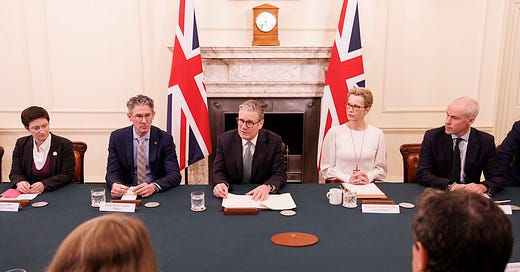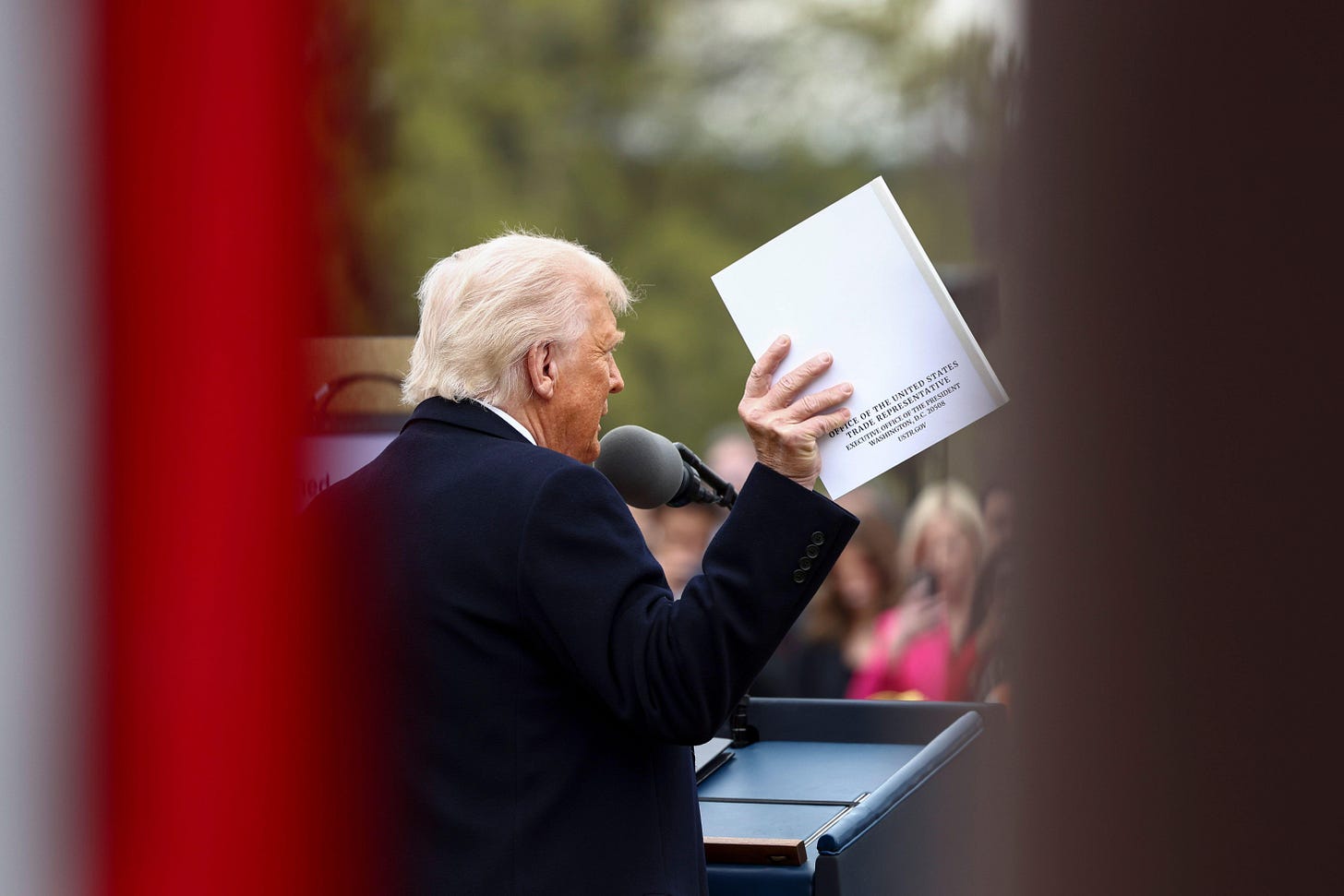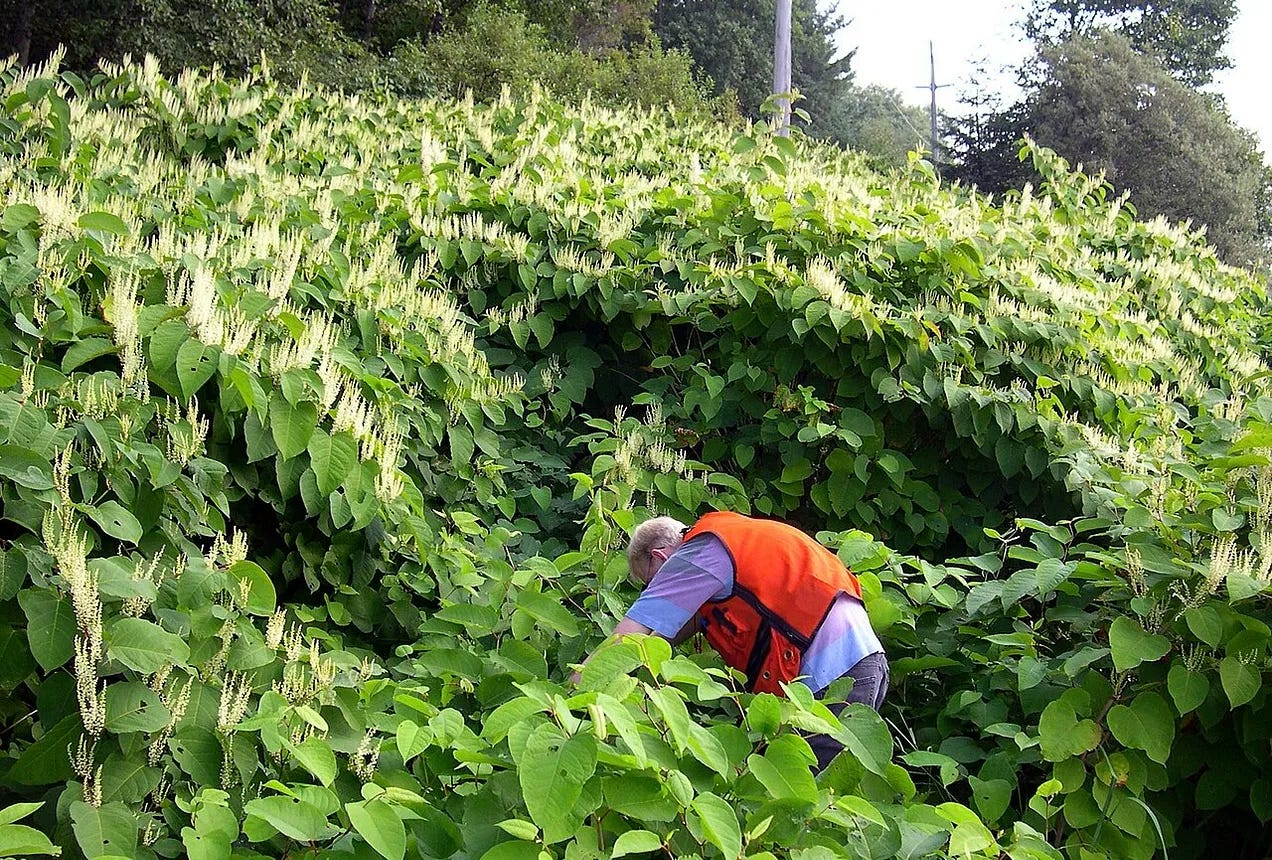
“Our intention remains to secure a deal” but “nothing is off the table” said Keir Starmer today as world leaders scramble to respond to Donald Trump´s decision to throw the global economic order into chaos.
Trump, meanwhile, is celebrating the sweeping set of tariffs he imposed on the world last night, declaring: "The operation is over! The patient lived, and is healing. The prognosis is that the patient will be far stronger, bigger, better and more resilient than ever before”.
US stock markets today paint a rather different picture. Tech stocks have taken big hits with Apple, which makes most of its products in China, down 9%. Shares in many sportswear retailers, which source most of their materials from Asia, have also slumped, with Nike and Adidas both down more than 10 per cent.
Stock markets in London, Paris and Berlin have also dropped sharply today - with Germany's Dax index taking the biggest hit, falling more than 2% - and earlier on Thursday, Japan’s Nikkei index closed down nearly 3%.
In his “liberation day” speech last night, the US President announced a 10 per cent blanket levy on imports from most countries, including the UK, effective from Saturday.
Additionally, roughly 60 countries which the US regards as the “worst offenders” when it comes to unfair trade practices will be hit with far steeper levies: to name a few, the EU has received tariffs of 20 per cent, Japan 24 per cent, Vietnam 46 per cent, India 27 per cent and China a whopping 54 per cent.
Does the US have legitimate grievances when it comes to global trade policy?
Gerald Warner writes in Reaction today that Trump has reason to believe that Washington was getting a “sucker’s deal” before. In 2023, the average US tariff on imports was 3.3 per cent, compared with 13.4 per cent in South Korea, 17 per cent in India and 7.5 per cent in China. And, while America only imposed a 2.5 per cent tariff on imported cars, including those imported from the EU, Brussels levied a 10 per cent tariff on American cars.
That said, one of the most cutthroat aspects of Trump´s sweeping set of tariffs - that will again damage America´s global reputation - is his decision to hit some of the poorest countries in the world, already reeling from USAID cuts, with the most punishing tax rates of all. Madagascar is facing a tariff of 47 per cent while earthquake-struck Myanmar is about to be hit by one of 45 per cent.
Against this backdrop, the UK has come off relatively well. Though that´s not to say these levies don´t spell trouble for Britain.
According to IPPR estimates, the 25 per cent tariff on all foreign-made cars threatens 25,000 British jobs at the likes of Jaguar Land Rover and Mini’s Oxford plant. One in eight UK-built cars are exported to the US. Negotiating the removal of this particular tariff is one of the UK´s “principal concerns” according to trade secretary Jonathan Reynolds.
Another concern is that manufacturers from countries facing especially steep tariffs and finding it hard to sell in the US market could product-dump on the UK, killing off some domestic sectors.
On a more optimistic note, shares in the UK’s biggest drug companies, GlaxoSmithKline and AstraZeneca, have gone up today on the London stock market, after the White House confirmed that the pharmaceutical sector, along with semiconductors, copper and some lumber products, would be exempt from Trump´s new tariffs. Medical products are one of the UK’s biggest export sectors, with shipments to the US worth £6.6bn last year.
It´s also worth remembering the majority of Britain´s trade with the US is actually in services. The UK has a huge surplus in services since it exports £126 billion pounds of services to the US annually while importing £57 billion from America. Fortunately for Britain, Trump´s tariffs do not apply to services.
The UK is also finally reaping a clear advantage from Brexit in that it has avoided the 20 per cent tariff imposed on Brussels. That said, the differential EU/UK tariffs imposed on American exports will create a further trade headache in Northern Ireland.
Today, UK ministers have drawn up a a 400-page list of US products it could hit with retaliatory tariffs. But, for now, the priority is to stay calm and seek a deal, Starmer has stressed, as he repeated the much-cited mantra that Trump is about to so brazenly put to the test: “Nobody wins in a trade war”.
Caitlin Allen
Deputy Editor
ON REACTION TODAY
Gerald Warner
The US was a patsy for too long, but scattergun tariffs are not the answer
Andrew Wilton
Word Watch: As
ALSO KNOW
Scunthorpe plant could close within days - British Steel could decide to shut down its Scunthorpe plant within the next few days, putting potentially 2,700 jobs at risk. The plant’s Chinese owner, Jingye, cancelled two fuel shipments, along with having pending payments for iron pellets.
Hungary withdraws from ICC - An official of Viktor Orban’s government has announced Hungary’s intention to withdraw from the International Criminal Court as Benjamin Netanyahu arrived in Budapest for a state visit. The Israeli Prime Minister has an arrest warrant issued against him by the ICC, over “reasonable grounds” that he bore “criminal reasonability” over war crimes in Gaza.
UK firm favourites for 2035 Women’s World Cup - The UK appears certain to host the 2035 Women’s World Cup after Fifa president Gianni Infantino confirmed it is the tournament’s sole bidder. All four nations would be represented in the tournament, having put forward a joint bid last month.
US romantic ban - The US Government has banned its China personnel from romantic or sexual relations with Chinese citizens, in a policy unknown since the Cold War. A blanket “non-fraternisation” policy also extends to family members of personnel and contractors with security clearances.
FIVE THINGS
Putin and Kim hate the West - and mistrust Beijing. Benjamin R. Young in Compact.
How did Trump calculate his tariffs? The basic maths unpacked. Mehreen Khan in The Times.
The narrow path to a new Middle East. Dana Stroul in Foreign Affairs.
The ONS is to refocus on core economic data, reports The Financial Times.














